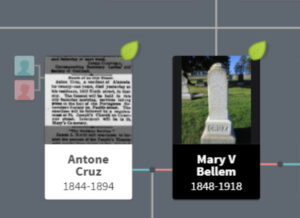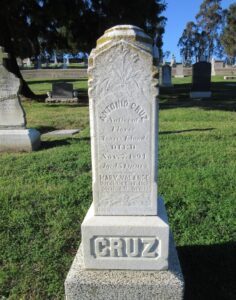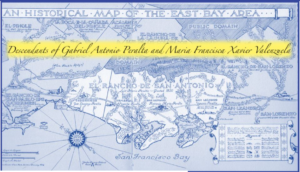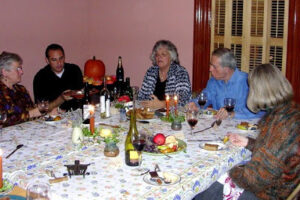(4/3/2021)
Our weekly roundup of upcoming genealogy events. Numerous associations offer online genealogy classes every week. Most are free. To register for one of the events below, click on the name of the host organization.
April 10: (10 a.m.) Monthly Board Meeting – all welcome
April 10: (1 p.m.) “Citations: Easier Than You Think” by Stewart Blandón Traiman
Conferences & Workshops:
April 8-9: 24-Hour Marathon (Legacy Family Tree Webinars)
April 10: Nashi Predky 2021 Spring Conference “East Meets West” (Ukrainian History and Education Center)
April 10: Virtual Spring Conference (Mid-Atlantic Germanic Society)
April 10: Spring Conference with CeCe Moore, the DNA Detective (Greater Omaha Genealogical Society)
April 9 & 10: Annual Spring Conference (Indiana Genealogical Society)
April 6: “Boston’s Jewish Family Businesses: The Colonial Era to the Present” by Michael Feldberg
April 8: “Jewels that Made History: 100 Stones, Myths, and Legends” by Stellene Volandes
In addition to the 24-Hour Marathon of webinars (see above), LFT offers these two classes this week:
April 6 & 7: “Four More Sources for New Zealand Family History” by Fiona Brooker
April 7: “DNA for Dog Lovers” by Shellee Morehead
Other Listings
Sutro Library’s Bay Area Genealogy Calendar lists a wealth of Bay Area events and exhibits, including regular genealogical group meetings. This week’s highlights:
April 6: “Keys to Obituary Research” (Santa Cruz Public Libraries)
April 10: Irish Genealogy Club (United Irish Cultural Center)
April 10: “Dude Ranches … in Sonoma County?” (Sonoma Valley Historical Society)
Conference Keeper has a large calendar of classes (too many to list) hosted by genealogical organizations around the country and abroad. Lots to explore, and new events are added often, so be sure to browse the entire calendar. Here’s a sampling of the coming week’s offerings:
April 5: “Confederate Pension Records” with Kayla Scott (Alabama Department of Archives & History)
April 6: “What Gravestones Can Tell You About Your Ancestors” (Lennox & Addington County Museum and Archives)
April 7: “Making the Most of Online Sources for Scottish Family History” (New York Genealogical and Biographical Society)
April 8: “What’s in a Name? Deciphering German Given Names and Nicknames” with Gail S. Blankenau (Germanic Genealogy Society”
April 9: “GenChat on Twitter: Trello and Genealogy” (GenChat)
April 10: “Dead Men Talking: Using Probate and Estate Records to Find Answers” (Houston Genealogical Forum)
April 11: “Comparison of Jewish Resources on the Giants: Ancestry, FamilySearch, Findmypast, JewishGen, & MyHeritage” (Jewish Genealogical and Archival Society of Greater Philadelphia)
See our post “Genealogy Learning in the Time of Coronavirus” for links to classes archived online at Ancestry, FamilySearch, RootsTech, and more. Be well, stay safe, and happy learning!
Copyright © 2021 by California Genealogical Society
(4/1/2021)
 |
| Two missing pieces discovered by the CGS research team |
By Chris Pattillo
During the library closure our Research Committee has continued to respond to requests for lookups and research. The number of calls is down – possibly because everyone has had more time at home during the pandemic to do their own work. In a typical year, the Research Committee receives about ten requests for genealogy research and another twenty-five calls for lookups.
Most calls come from nonmembers of CGS who find out about our research services by Googling and somehow making their way to our website. Kimberly Riner learned about our services from our Facebook page. She considers herself an intermediate researcher, having worked on her family history for several years, but she’d hit a brick wall. Kim’s goal was to pin down the name of her great-grandmother on her paternal line. As is often the case, she’d been told some false information about her family origins. That, combined with some sloppy work by a census taker, had her stumped.
Kim contacted our research committee and Pat Smith got to work. Relatively quickly Pat found clues on the 1900 census that ultimately confirmed the name of Kim’s great-great-grandfather and that led to several more generations further back. Kim was delighted. She wrote, “Wow!! You are amazing! I can’t believe how much information is in that package. Thank you so much!”
How many times have you heard someone tell you that you cannot always trust what was recorded by the census taker? Pat was suspicious when she noted that the enumerator had erased what he originally recorded and then written “Asia” as the birthplace of Kim’s great-great-grandfather. Pat surmised that what was originally written had been “Portugal” and that when Kim’s grandfather elaborated with “Azores” the census worker had misunderstood the place and written “Asia.” Pat followed her hunch and confirmed that Kim’s ancestors on her father’s side were from the Azores – a group of islands in the Atlantic Ocean west of Portugal.
The census taker had also written that Kim’s great-great-grandmother was from Massachusetts. Kim had been told that her great-grandmother was from California, so that threw her off as well. Sometimes when you’re stumped, a pair of fresh eyes is what is needed. That is what Pat Smith was able to do for her client and Kim was thrilled. She wrote back to Pat, “I really can’t thank you enough. I’m going to see where all this info gets me and I will contact you when I get stumped again!”
This sentiment jibes with Pat’s experience working with people who hire the CGS Research Team. Typically, they are people who have good research skills, have made a lot of progress and simply are stuck. Kim was very satisfied. It was also a rewarding experience for Pat, who estimates she’s volunteered for seven to ten years. “It feels good when our clients get excited – that we’ve been able to help them,” she said.
 |
|
| Pat Smith went the extra mile for client Kim Riner, visiting St. Mary’s Cemetery in Oakland to take this photo of her ancestors’ headstone |
Kim added, “Pat was able to find a great deal more information including a really interesting story about an inmate who [my second great-grandmother’s sister] married. I imagine for the time it was quite the drama! Pat was able to find my ancestors as far back as my sixth-great-grandparents from the Azores.”
Kim compared several research services before finding CGS and found our fees are very economical. The current fee is $50 per hour with a two-hour minimum. Committee member Pat Smith reports that most research projects end up costing $100 to $200. Most clients come to CGS to do research on their California ancestors. Then they find out that our team does more than just California – we do research for every state. CGS also has the resources to investigate other parts of the world. Pat was able to read the documents from the Azores that were written in Portuguese. She also does Danish and Swedish research. Diane Richards, another member of the team, reads French and others can handle German and Spanish. Our large membership means we can usually find someone to help with just about anything.
Pat misses the collaboration with her fellow Research Team members and looks forward to the library reopening, when they can gather again. Until then don’t hesitate to contact the Research Committee if you need help: research@californiaancestors.org.
Copyright © 2021 by California Genealogical Society
(3/30/2021)
The Research Committee of CGS undertook this research project in 2008 on behalf of the Friends Board of Peralta Hacienda Historical Park, located in the Fruitvale neighborhood of Oakland. The research team was led by Lavinia “Vinnie” Grace Schwarz along with members Judy Bodycote and Dick Rees. Other contributing members were Verne Deubler, Arlene Miles and Marilyn Willats.
The Peralta Family Tree includes some 700 descendants of Gabriel Antonio Peralta and Maria Francisca Xavier Valenzuela, some of whom still reside in the East Bay. Source information is available at the CGS Library. A portion of this tree along with supporting research material can be seen at the Peralta Hacienda Historical Park. It is part of a permanent exhibit on display inside the restored home of Antonio Peralta. The home is open to the public and docent-led tours can be arranged to see the exhibit, the house and grounds.
Copyright © 2021 by California Genealogical Society



